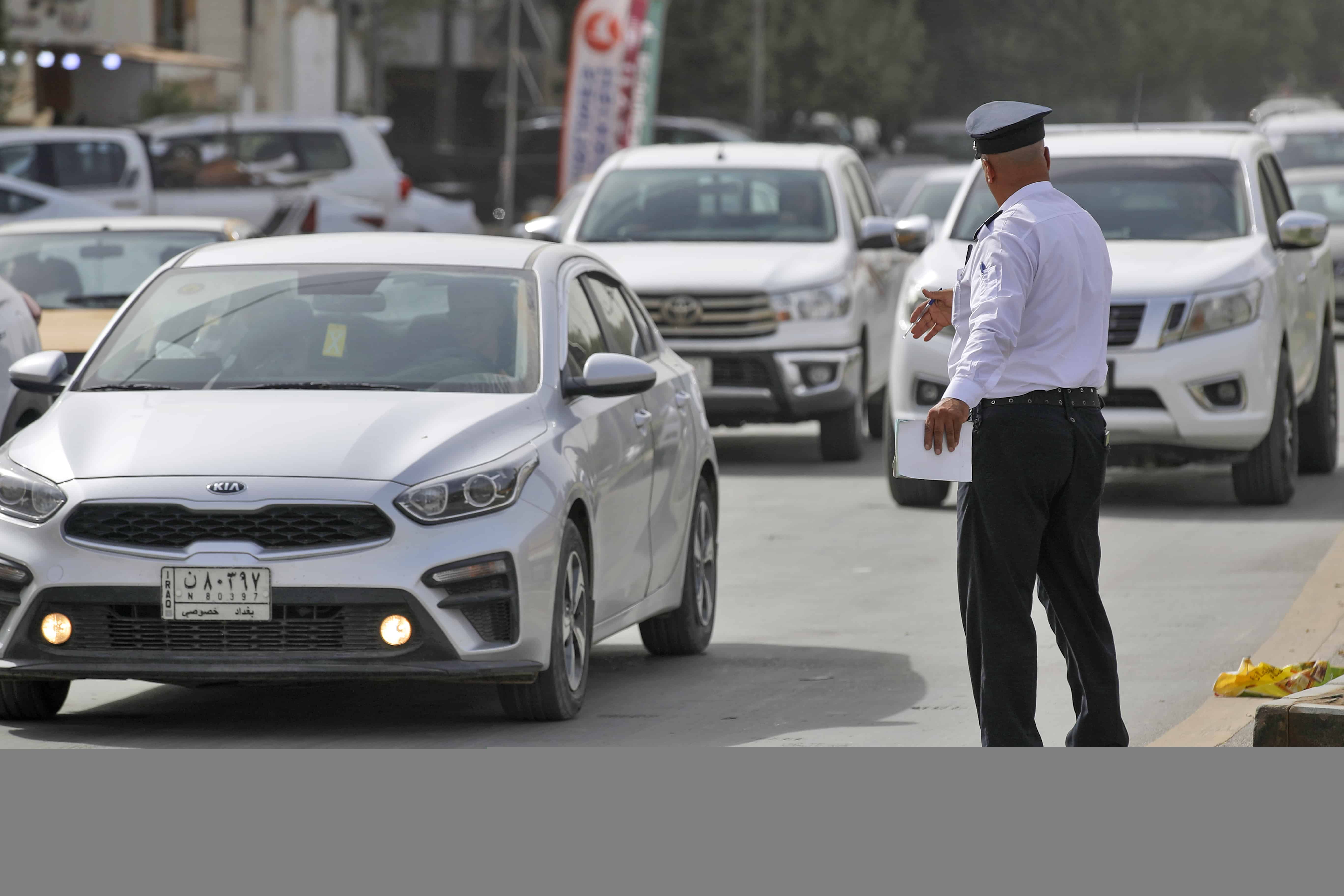Five years ago, Iraqi taxi driver Osama Mohammed would make about six trips a day across Baghdad. Today, traffic is so bad he feels lucky to do three.
“The first thing you see in the morning is traffic jams,” said 40-year-old Mohammed, describing his “exhaustion” at the stop-and-go traffic he endures across the sprawling capital.
It has become so bad that he now often turns down fares.
“It is better to forget about it because you will spend two hours on the road,” he said. “Your day will end in traffic jams.”
Experts point at many reasons for the growing chaos: a post-war mini boom has brought more people and more cars, while the war-battered infrastructure has barely changed.
Security checkpoints still add to the gridlock, a legacy of the years of war and sectarian conflict when Baghdad was rocked by frequent car bombings.
Most importantly, political paralysis and a state sector hobbled by widespread corruption have snarled road and rail projects that could bring relief.
In a city of eight million, the number of vehicles has surged from 350,000 before 2007 to over 2.5 million today, said Baghdad municipality spokesman Mohammed al-Rubaye.
The research group Future of Iraq estimates that the fuel each vehicle wastes daily by idling in Baghdad traffic jams is equivalent to driving 20 kilometers (12 miles).
The problem intensifies air pollution in a country already struggling with more frequent sandstorms, a trend linked to climate change, and blistering summer heat that peaks above 50 degrees Celsius (122 Fahrenheit).
Legacy of war
Baghdad’s roadside concrete blast walls may have largely gone, but decades of war have left a legacy of pockmarked roads and dilapidated infrastructure.
The country suffered through the Iran-Iraq war of the 1980s, the US-led invasion in 2003, years of sectarian fighting and the battle against the Islamic State group’s jihadists who were finally defeated in 2017.
Since then, entire new neighborhoods and high-rise buildings have sprung up, such as the futuristic new central bank headquarters designed by the firm of late Iraqi-British star architect Zaha Hadid.
The relative stability has accelerated domestic migration, particularly an influx of laborers from the impoverished south.
But the capital still lacks a robust public transport system, with no trains or trams and only infrequent buses.
A metro rail system would “reduce congestion by 40 percent”, estimated Rubaye, but for now this is a distant dream.
One such project was envisioned in 2011 with French firm Alstom. And in 2020 a letter of intent was signed to develop a 20-kilometre (12-mile) 14-station elevated metro system.
Some $45 million has already been spent on the project plans, according to former Baghdad governor Faleh al-Jazairi, but with no visible impact so far.
‘More cars than people’
The large infrastructure projects have been stalled amid political logjams in Iraq’s dysfunctional parliament.
Since Iraq held legislative elections in October, the MPs have failed to elect a new president and government, due to political wrangling among powerful Shiite factions.
The inaction and waste are exacerbated by large-scale graft in a country ranked among the worst in Transparency International’s Corruption Perceptions Index.
And so the rush-hour traffic keeps grinding to a standstill on Abu Nawas road, the capital’s main thoroughfare running along the bank of the Tigris River.
A police traffic officer who gave his name only as Hussein grumbled that many roads “haven’t been modernized” for decades and that now “it’s like there are more cars than people”.
Some suggest that in Iraq, known in Arabic as the Land of the Two Rivers, water transport on the Tigris could offer a much-needed remedy to the city’s traffic problem.
But for now, only a handful of tourist boats ply its waves, offering views of another wartime legacy, the heavily fortified “Green Zone” district of government buildings and embassies.
The prospect of a riverine public transport system seems unlikely, opined one resident, Yasser al-Saffar.
“Everyone who lives in the Green Zone,” he said, “will consider such a project a threat.”








